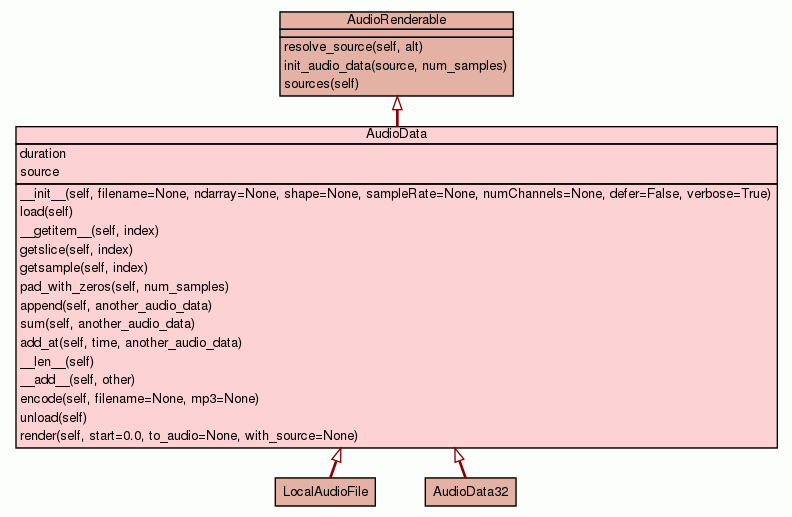Handles audio data transparently. A smart audio container
with accessors that include:
|
|
__init__(self,
filename=None,
ndarray=None,
shape=None,
sampleRate=None,
numChannels=None,
defer=False,
verbose=True)
Given an input ndarray, import the sample values and shape
(if none is specified) of the input numpy.array. |
source code
|
|
|
|
|
|
|
__getitem__(self,
index)
Fetches a frame or slice. Returns an individual frame (if the index
is a time offset float or an integer sample number) or a slice if
the index is an AudioQuantum (or quacks like one). |
source code
|
|
|
|
|
|
|
|
|
|
|
|
|
|
|
|
|
|
|
add_at(self,
time,
another_audio_data)
Adds the input another_audio_data to this AudioData
at the time specified in seconds. |
source code
|
|
|
|
|
|
|
__add__(self,
other)
Supports stuff like this: sound3 = sound1 + sound2 |
source code
|
|
|
|
encode(self,
filename=None,
mp3=None)
Outputs an MP3 or WAVE file to filename.
Format is determined by mp3 parameter. |
source code
|
|
|
|
|
|
|
| render(self,
start=0.0,
to_audio=None,
with_source=None) |
source code
|
|
|
Inherited from AudioRenderable:
resolve_source,
sources
Inherited from object:
__delattr__,
__format__,
__getattribute__,
__hash__,
__new__,
__reduce__,
__reduce_ex__,
__repr__,
__setattr__,
__sizeof__,
__str__,
__subclasshook__
|

